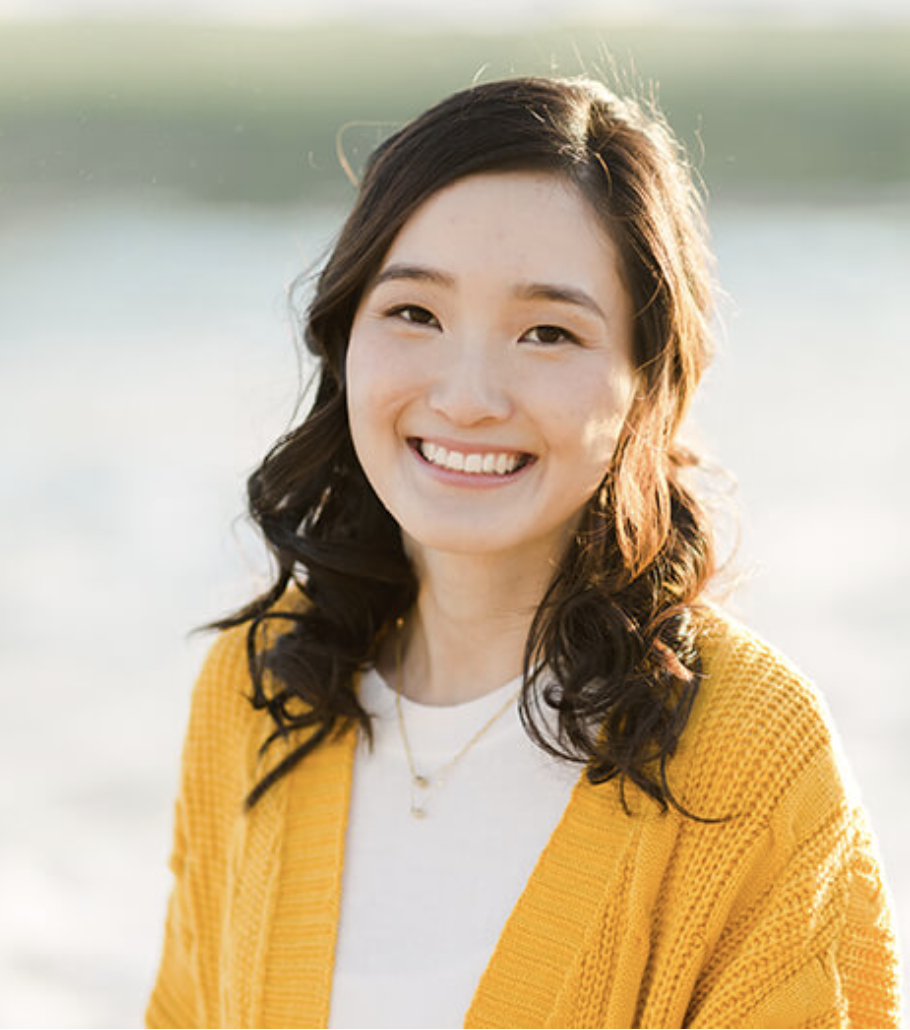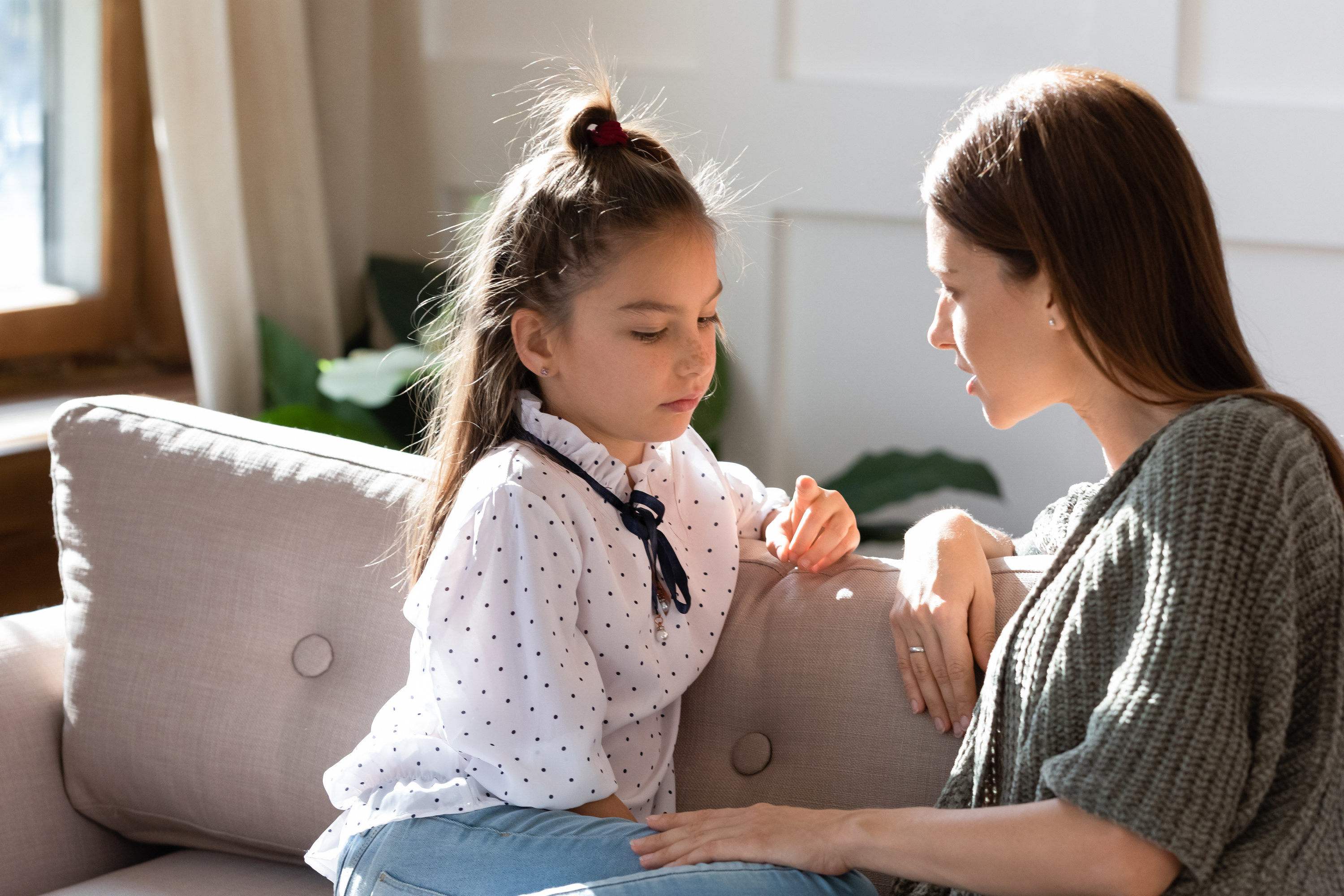For many people with attention-deficit hyperactivity disorder, otherwise known as ADHD, that diagnosis will come in childhood. But did you know that boys are three times more likely to receive an ADHD diagnosis than girls?

That gender disparity continues later into life. Rather than being diagnosed as children — as men often are — women may not receive that diagnosis until adulthood.

According to the American Psychological Association, the average age range for a woman getting diagnosed with ADHD is between their late 30s or early 40s.
So to help bring more awareness to this women's mental health topic, we connected with Linda Yoon, LCSW, who is a psychotherapist and a self-described "fellow late-diagnosed ADHD-er." She's also a founder and co-director of Yellow Chair Collective — a company that provides Asian American and multicultural mental health and therapy services.

"I am an ADHD woman and therapist who wasn’t diagnosed until adulthood," Linda explained to BuzzFeed. "Growing up, my ADHD traits were simply seen as my 'quirks' or personality traits — things like talking fast or a lot, or being clumsy. Because I did mostly well in school, nobody really expected ADHD for me. But behind the scenes, I was always struggling with keeping my focus, concentration, time management, and motivation."
"I would often compare myself to how I would get distracted more often and spend so many hours and nights on one project when I could tell that my peers did not have to spend that much time," Linda said.
"And then for those days I couldn't get myself to start, I was called lazy or told that I did not live up to my potential. I was often told [that I was]: 'Smart but can’t maintain the effort and progress.'"
Through the lens of not only her own ADHD experience but also as a psychotherapist who specializes in teen and adult ADHD treatment, Linda explained to BuzzFeed about the common (and lesser-known) ADHD symptoms in women, why ADHD shows up differently in women compared to men, and the kind of treatments one can seek. Find all of that below, plus further resources at the bottom of this post.

According to Linda, there are three main types of ADHD:
1. Inattention type: Difficulty with consistency in focus, attention, concentration, motivation, planning, and organization.
2. Hyperactive-impulsive type: Restlessness, fidgeting, acting impulsively without thinking of consequences.
3. Combined Type: A combination of both inattentive and hyperactive symptoms.
While men tend to fall under the "hyperactive-impulsive" type of ADHD, Linda explained that women with ADHD are more likely to experience "inattentive type" symptoms, such as difficulty staying focused or organized consistently, paying attention to details, and remembering tasks or conversations.

This is most likely why it's possible for someone to be diagnosed with anxiety and depression along with ADHD, especially for women.

So what are some symptoms that are often found to overlap with one another? According to Linda, they are high emotional sensitivity and difficulties with emotional regulation.
"Many ADHD women report that they have been told, 'You are too sensitive,' or, 'You need to let it go,' often and found it hard to manage their feelings," she said. "There is also a term called rejection sensitive dysphoria, which describes intense overwhelming emotions an ADHD person can feel after a sense of either perceived or real rejection or criticism from others."

"Feeling things deeply and being constantly told that their emotions are wrong can cause a lot of negative self-narrative," Linda said. And not knowing why they struggle can leave them to self-blame and have low self-esteem."
"Many of our female ADHD clients carry negative beliefs that they are not good enough or something is wrong with them because that’s how they felt for a long time, often without an answer," Linda added. "These struggles, emotions, and negative self-narratives build up, which can lead to symptoms of anxiety and depression."
Since many women are diagnosed with ADHD later in life, Linda explained, "Their ADHD struggles [while growing up] were seen as personality traits by their families and others — rather than an actual disability they could have had."

For instance, some "personality traits" that might not even be considered ADHD related are some of the most common "societal norms" in the US.
"There are [women with ADHD] who were considered 'gifted' growing up because of their ability to have multiple interests and super-focus on tasks in their interests as long as structure had been given," Linda explained.
"Those achievements and titles can be deceiving and seen as invalidation that they could have ADHD. Somehow, the popular belief is that unless their life is falling apart outside for people to see, their ADHD may not be real."
To further explain what may be considered "lesser-known" ADHD behaviorial traits for women, Linda provided the list below:

If the above information signals to you that you or a loved one may want to be evaluated or assessed for ADHD, Linda further described how to do that.

If you're getting a formal diagnosis, Linda explained that most psychologists and psychiatrists can provide an ADHD evaluation or assessment. "A neuropsychology assessment can also provide an in-depth analysis of your strengths and challenges," she said.
Once you've been diagnosed, there are a few ways one can choose to treat their ADHD — however, Linda said, "Medication plus therapy is considered to be the golden standard." (Of course, ADHD treatment is based on the individual and doctor's recommendations — so make sure to consult with a medical professional to find the best fit for you.)

At the end of the day, everyone's ADHD journey is different, and what may work for you, may not exactly work for someone else — and that's OK! But if you're interested in learning more about ADHD, make sure to connect with a professional. The websites below are also great places to start with research and community-building.
• Kaleidoscope Society: Kaleidoscope Society is an online community for and by women with ADHD.
• CHADD (Children and Adults with Attention-Deficit Hyperactivity Disorder): CHADD is a national nonprofit that helps people affected by ADHD.
Are you a woman who has ADHD? When did you realize you had ADHD, and what do you believe has been the greatest thing to help you with your own ADHD journey?
The National Alliance on Mental Illness helpline is 1-888-950-6264 (NAMI) and provides information and referral services; GoodTherapy.org is an association of mental health professionals from more than 25 countries who support efforts to reduce harm in therapy.

